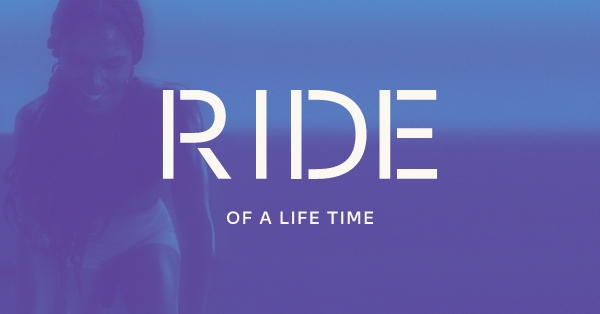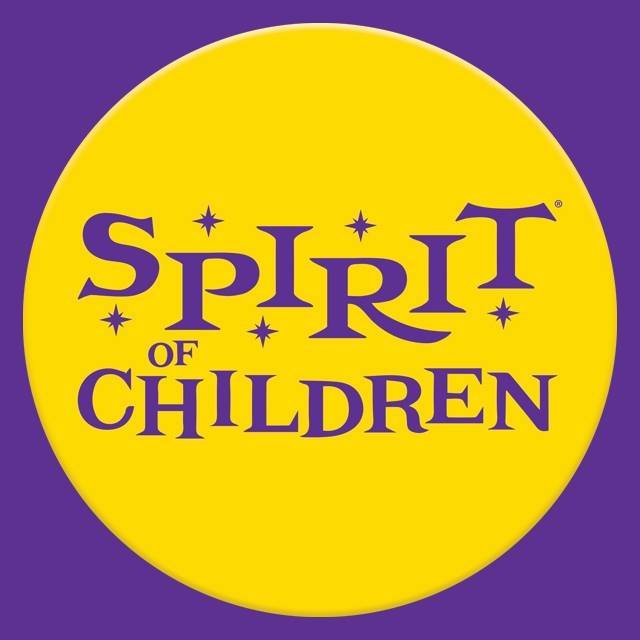What Pediatricians Are Saying About the COVID-19 Vaccine for Children 5+
After months of careful research and review, a COVID-19 vaccine could be approved for children ages 5-11 as soon as this week. On Friday, Pfizer said the vaccine was 90.7% effective against COVID-19. And Moderna may have a vaccine for children 6-11 available soon. The company said it plans to submit its data to the FDA in the near future.
Many parents say they’re anxious about getting their children vaccinated against COVID-19. We decided to ask several Cook Children’s physicians what they think about all of the recent vaccination news regarding children. Here are their responses:
How do you feel (or what do you think) about the recent news of a Pfizer vaccine potentially being available to children 5+ in early November?
Excited. This opens up a preventative treatment for kids in this age group. The sooner this is evaluated and approved, the more illness we can prevent. Especially going into the holidays. – Nicholas Rister, M.D., pediatric infectious diseases physician at Cook Children’s
This is great news. The vaccines are very important to get ahead of this pandemic. – Ana Rios, M.D., pediatric infectious diseases physician at Cook Children’s

I cannot tell you how excited I was to hear Pfizer asking for emergency use authorization (EUA)! I cannot wait to begin vaccinating our younger and more vulnerable patients. Vaccinating as many people as possible is the only way to end the spread of this disease and restore some degree of normalcy to our lives. I’m hoping that families who are planning on traveling for the holidays or seeing extended family for the first time in months will consider vaccinating their children to protect their families while traveling and to protect at-risk older relatives. I know that my 5-year-old niece will be getting her vaccine as soon as it’s available. I know my own two children (3 years and 1 year) will have to wait a few more months but they will be first in line as soon as it’s approved for their age group! – Laura Romano, D.O., hospitalist at Cook Children’s
We want to make sure that we are moving forward in the safest way possible but having protection for children would be great before holiday gatherings begin. – Justin Smith, M.D., pediatrician at Cook Children’s Pediatrics Trophy Club
Excited and very much full of anticipation as both a pediatrician for my patients and as a mom for my littles who are 5 and 7. – Bianka Soria-Olmos, D.O., pediatrician at Cook Children’s Pediatrics Haslet
I am looking forward to being able to provide my patients who are 5-11 years of age the same protection that my older patients have been getting for the last several months. It is so important that we extend the protection of this vaccine to this age group so that they can stay in school and not spread the disease in the community to those more vulnerable among them and around them.
– Jason Terk, M.D., pediatrician at Cook Children’s Pediatrics Keller Parkway
Are you concerned about how long it’s taking for the COVID vaccine to be approved for kids 5+?
No, on the contrary. I think that the evaluation of safety and efficacy of vaccines in children take longer and this means that they are taking the time to analyze the data and evaluate for potential signals of concerns. – Ana Rios, M.D.
While we always want to have treatments available for children as soon as possible, it’s important they be rigorously evaluated. Especially with concerns for some rare side effects that skewed to younger age groups like myocarditis, it was important that the vaccine application have adequate data from children and not extrapolate only from adults. – Nicholas Rister, M.D.
I am not concerned about the length of time, if anything I am comforted by the process. I’ve heard from a lot of families in the hospital that one of the reasons they have decided not to vaccinate their children is that this is such a new vaccine and the process has been rushed. They are concerned since it was called “Operation Warp Speed” that corners have been cut. It’s nice to be able to reassure them that both Pfizer and Moderna increased their study length and their study size to make sure that this vaccine was safe and effective! While the mom in me wishes it would have happened three months ago, the scientist and the pediatrician in me appreciates the process and the time that it has to take. – Laura Romano, D.O.
I would want things to be done in the safest way possible. If that means taking some more time to get information and thoroughly review it, I am fine with that. – Justin Smith, M.D.
No concerns given my hopes are that people gain perspective of how the data was gathered and analyzed to ensure efficacy, safety and other measures considered when vaccine trials are conducted. – Bianka Soria-Olmos, D.O.
No. It is so important to make sure that we understand how the vaccine works in younger children. Younger children are not little adults and the physiology is unique. Making sure that the vaccine is safe and effective in this population is something that must be appropriately studied. The clinical trials show that the Pfizer vaccine works very well in 5-11 year olds and is associated with the same common side effects that are seen in older eligible teens and adults. – Jason Terk, M.D.
What should parents consider when deciding whether or not to get the COVID vaccine for their children?
Parents should consider that COVID can affect children more than what we originally thought. COVID is here to stay, and it’s better to get vaccinated against it than to get the viral disease. – Ana Rios, M.D.
Assuming the vaccine is approved, the major consideration should be where and when to get vaccinated! As with adults, the risk for these vaccines is likely to be extremely low while the benefits are relatively high. Of course, children that have risk factors (chronic disease, obesity, asthma) should expect even more benefit from vaccination, but the general population should plan to get it as well. There are so many people who are at risk of severe disease and death from COVID that the benefit we get form widespread vaccination isn’t just about our children or ourselves, it’s about many people who we can prevent from getting sick without ever even knowing them. – Nicholas Rister, M.D.
Parents need to be aware that, although COVID has been mild for most kids, that is not always the case. Severe COVID and MIS-C continue to be a problem in children but these can be eliminated with an effective vaccine. – Justin Smith, M.D.
Parents should continue to have conversations with their child’s doctor. Each child’s particular situation is better discussed between and parent and pediatrician that knows the child. Because although the vast majority of children will have mild disease the recent surge has shown that children can get severely ill from COVID-19 and even deaths have occurred. The recent surge has shown that besides underlying health conditions being unvaccinated is a risk factor for severe illness. – Bianka Soria-Olmos, D.O.
Parents need to know that while most children who have gotten sick with COVID-19 have had a fairly mild illness, many have gotten more seriously ill and have required hospitalization. At the very least, illness in children has required that they isolate and that their household contacts quarantine for even longer. This has deprived them of their ability to go to school and to return to normalcy. – Jason Terk, M.D.
Parents need to consider the risks of being infected with COVID versus the risks and benefits of the vaccine. COVID, despite what some of our families still believe, is not simply a bad flu. COVID can be just as serious in our children as it can be in adults. Children’s hospitals, including Cook Children’s here in Fort Worth, have unfortunately had children pass away from COVID. Some of these children could have been vaccinated but parents decided to wait. Others were too young to be vaccinated. I’ve heard some parents say that it’s “only 500” or so children that have died. “Only” and “children who have died” are two phrases that do not belong together. Any child that dies from a preventable illness, which COVID now is, is a tragedy. And I’m sure that the parents and families of the “only 500” children if given the opportunity would have vaccinated their children.
COVID infection causes many severe complications such as blood clots, myocarditis, pneumonia, and acute respiratory failure. We are seeing children be affected with daily fatigue and headaches as long haul symptoms. We still see multisystem inflammatory syndrome in children (MIS-C), which is always serious and can be fatal itself. These are all things that can be prevented with the vaccine.
The vaccine will also protect against subsequent infection. Some families and parents believe that if they have previously been infected with COVID, they cannot get ill again. Studies are now showing that protection from COVID only lasts about 6 to 8 months. After that, these patients are at risk for a second, more severe infection.
Yes, there are risks to the vaccine. Many people experience injection site pain, muscle and joint aches, fatigue, and maybe fever/chills. Yes, there can be more serious side effects such as myocarditis. But these risks are extremely rare (less than 1 in 20,000 people experience myocarditis following a COVID vaccination) when compared to the actual infection itself (almost 1 in 40 experience myocarditis with an actual COVID infection).
The vaccination also does not affect fertility and it does not cause miscarriages.
We have administered almost 3 billion doses of the vaccine to the 6 billion people in the world. Half of the world’s population is now at least partially vaccinated against COVID and we are not seeing any serious sustained side effects.
The vaccine is safe. The vaccine is effective. It protects against a life-threatening and fatal illness. The benefits of the vaccine far outweigh the risks associated with the vaccine and the risks associated with the actual virus. – Laura Romano, D.O.
For those of you with young children, do you plan to get your child vaccinated against COVID? Why?
My children are 3 years old and 1 year old. They will be first in line to get vaccinated once they are eligible! I’m doing this for their own protection since I treat COVID patients on almost a daily basis. I’m doing this for their protection since they are both in daycare. I’m also doing this to protect my father and their grandfather. My father is a Type 1 diabetic with rheumatoid arthritis and I’m always terrified of accidentally spreading COVID to my father when he visits his grandchildren. My children being vaccinated will give me so much peace of mind. – Laura Romano, D.O.
I plan to review the data gathered and released just like I have for every other vaccine in past. As a physician scientist, I will evaluate the data objectively and make recommendations based on this data. This will afford me a good basis for helping me make the decision for my own children. As long as the data shows good efficacy, high safety (minimal risk of adverse side effects) then I will vaccinate my children. Although the official data has not yet been released so far from what I have heard from my expert colleagues the data is promising. – Bianka Soria-Olmos, D.O.
I’m still waiting on the official data and FDA panel’s recommendation but expect that it will be favorable. – Justin Smith, M.D.
I don’t have children but I do recommend my friends and relatives to get their children vaccinated since the benefits outweigh the risks. – Ana Rios, M.D.
With COVID-19 cases decreasing, should children still wear masks to school?
I think that that physical measures such as wearing masks to school should continue in the meantime since we still have many cases in the community and a lot of people that are not vaccinated, children and adults, especially in Texas. – Ana Rios, M.D.
We are happy to see cases decreasing but there is still a lot of COVID out there. As long as total cases remain high, there is still a significant benefit from wearing the masks at school. As we get into lower and lower case counts, this will likely change but it remains unclear exactly how long. – Nicholas Rister, M.D.
Yes, although it is very promising that cases are decreasing, community spread remains high and at this point mitigation policies are the only way to bridge the gap of time between now and an EUA for COVID-19 vaccine for school aged children which will hopefully create a continued decline in disease burden and safer schools. – Bianka Soria-Olmos, D.O.
Yes. We know that masking substantially reduces risk of transmission and subsequent illness in schools. We encourage all of our patients to maintain masking whether or not they are vaccinated. – Jason Terk, M.D.
Yes, children should absolutely continue to wear masks to schools! This will continue to help decrease the number of cases not only of COVID but of RSV and influenza.
I also tell my patients that I got my initial vaccination series when I was 6 weeks postpartum. I was exclusively breastfeeding my infant son and was so happy to be able to pass some antibodies to him to offer him some protection. He unfortunately tested positive for COVID in August of this year. While it was an extremely terrifying time for our family, he luckily managed to escape with 3-days of nasal congestion and one day of fussiness. I tell my patients and their families that the only reason we were not in the hospital with severe respiratory distress was because of the antibodies he received from me, from my vaccine. My vaccine not only protected me but protected my son as well. I tell my families that I would have gotten the vaccine even while pregnant because I knew that it would not harm me or my baby and that it would protect both of us. – Laura Romano, D.O.
Anything else you’d like to add?
Being a pediatrician mom has been such a roller coaster, especially this last year and half. It has made living life in a pandemic a bit more complicated than most may think and have experienced. Knowing the “worst case scenario” while parenting during a pandemic makes me want to keep my kids in a “bubble” which of course is impossible and has proven to be nothing less than nerve-racking. It however has allowed me to counsel families with the assurance that I would not recommend anything for their children that I would not do for my own. – Bianka Soria-Olmos, D.O.






